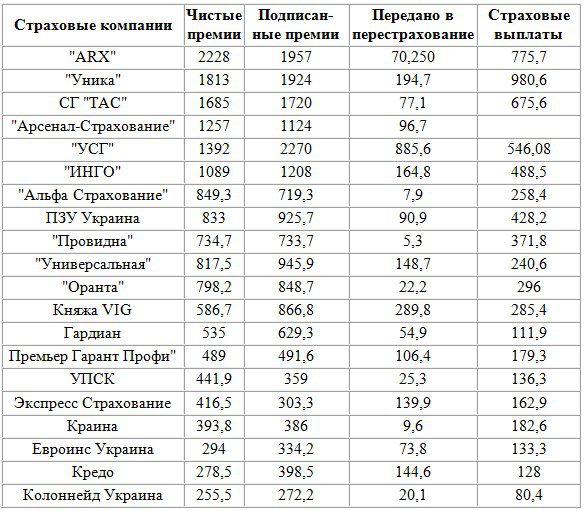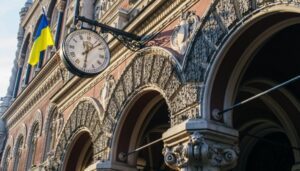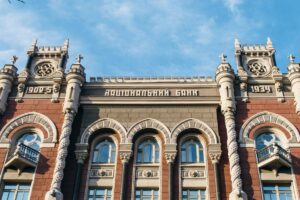
The National Bank of Ukraine has cancelled licenses for four financial companies and one credit union, and excluded two credit unions from the State Register of Financial Institutions, according to the regulator’s website.
According to the NBU, the decisions of December 12, all licenses of Holastis Financial Company LLC, Maximum Financial Company LLC and Credit Finance Ukraine Financial Company LLC have been annulled.
As reported, on October 19, 2022 the mentioned institutions have been applied sanctions in the form of temporary suspension of licenses to provide financial services due to non-provision of information and documents about the ownership structure requested by the National Bank of Ukraine. As of the moment of taking decision on cancellation of licenses the violations have not been eliminated.
Besides, LLC “FC “Plaza Inves” has its license for provision of financial leasing services revoked due to failure to provide any financial service under this license during 12 months since the day of its issuance.
CC “Ukrainian Oshchad Center” is also excluded from the State Register of financial institutions due to the cancellation of all previous licenses and CC “Elliada” on the basis of its own application, guided by the special procedure during martial law.

The leaders of the insurance market of Ukraine in terms of net insurance premiums collected in January-September 2022 were insurance companies ARX (UAH 2.228 billion), “Unica” (UAH 1.813 billion) and SG “TAS” (UAH 1.685 billion, all – Kyiv).
As reported in the main indicators of insurance companies in Ukraine for 8M2012, published on the NBU web site. 2022, the leaders in insurance payments in this period were Unica (980 mln UAH), ARX (775,7mn UAH) and SG TAS (675,6 mln UAH).

Data: NBU, mln UAH

On November 16, the National Bank of Ukraine cancelled licenses for 17 non-bank financial institutions and excluded 13 from the State Register of Financial Institutions, the regulator’s website reported.
Thus, on the basis of their own applications, all the licenses of the following LLCs were cancelled: FC Favorit, Capital Properties, Fin2go, Professional Payment System, Agema Finance, ICC Finance, Skye FC, Favorit FC, Parus FC, FC “Finex Capital”, FC “Tessella Asset Finance”, PO “Lombard Creditom” LLC “Autodoc” and company, FC “Center of factoring services”, FC “Sokur”.
In addition, some licenses were revoked on the basis of the applications received: FC Technofinance – for the provision of financial leasing services, Profitgid – for the provision of factoring services, the provision of financial leasing services, FC Fin Pay – for the provision of factoring services, lending funds, including a financial loan.
Based on the received applications and documents the following companies were excluded from the State register of financial institutions: PA “Lombard “Creditom”, LLC “Agema Finance”, LLC FC “Favorit”, LLC “Professional Payment System”, LLC “ICC Finance”, LLC “Capital Prospect”, FC “Tessella Asset Finance”, LLC “FC “Favorit”, LLC FC “Finex Capital”, LLC “FC “Factoring Services Center”.
LLC “Financial company “Whitepay” and LLC “Financial company “Pung” were excluded from the State register of financial institutions due to the lack of licenses for activities.

Banks with foreign capital Alfa Bank and Raiffeisen Bank (both in Kiev) topped the list of 46 profitable banks in September with net profit UAH 558.2 million and UAH 522.3 million respectively.
According to the data published by the National Bank of Ukraine on its website with a significant delay, Alfa Bank reduced its reserves by UAH 646.1 mln, while Raiffeisen Bank showed a profit despite the formation of additional 667.9 mln reserves.
Alfa’s assets decreased by UAH 6.6 bln, or 5.9%, while Raiffeisen Bank increased by UAH 5.1 bln, or 3.2%.
There are also three banks with foreign capital in the top five leading positions in September: OTP Bank – UAH 423.0 mln, Ukrsibbank – UAH 399.1 mln and Citibank – UAH 390.5 mln.
Oshchadbank lagged a little behind, showing UAH 371.4 mln of profit in September, despite the increase in reserves by another UAH 1.18 bln. Universal Bank (mono) followed with UAH 222.9 mln and Credit Dnipro Bank with UAH 178.1 mln.
Alfa Bank managed to improve its financial results in September after the largest loss of UAH 1.357 billion, which was registered in August among all banks, while Ukreximbank, that ranked second from the bottom with losses of UAH 1.103 billion, demonstrated only poorer results in September: UAH 3.5 billion with an increase of reserves by UAH 2.47 billion and assets by UAH 16.93 billion.
PrivatBank went from the most profitable bank in August (UAH 3.21 billion) to one of the most unprofitable in September, having showed negative financial results of UAH 317.4 million and decrease of assets by UAH 20.02 billion with insignificant growth of reserves by UAH 0.07 billion.
Idea Bank (UAH 190.3 mln (UAH 67.6 mln), FUIB (UAH 183.1 mln) (UAH 498.1 mln), ProCredit Bank (UAH 145.3 mln) and Alliance Bank (UAH 138.1 mln (UAH 86 mln)) were among the banks with significant losses as of September.
According to the results of nine months of this year, PrivatBank remains the most profitable – UAH 13.83 billion.
It is followed by Oshchadbank with 2.71 billion UAH, Raiffeisen Bank with 2.39 billion UAH, Ukrsibbank with 2.10 billion UAH and Citibank with 1.51 billion UAH, and three private Ukrainian banks: Universal Bank with 0.88 billion UAH, Pivdenny Bank with 0.34 billion UAH and Aybox Bank with 0.29 billion UAH.
The biggest losses in January-September were shown by Ukreximbank – UAH 7.91 billion, Alfa Bank – UAH 4.32 billion, and state-owned Ukrgasbank – UAH 3.36 billion.
ProCredit Bank and Idea Bank are at the bottom of the five losing banks with UAH 1.43 billion and UAH 0.23 billion.
Within nine months of this year 44 banks showed net profit, while 23 banks showed net loss.
The total net profit of all banks amounted to 7.37 billion UAH after the net loss, including 1.06 billion UAH in September. However, excluding PrivatBank, the financial result of the banking system for the nine months will also be negative – 6.46 billion UAH.
According to the National Bank, in September, the total portfolio of government bonds of all banks decreased by UAH 0.24 billion, most of all in Alpha Bank – UAH 1.97 billion, while FUIB – UAH 0.56 billion, Citibank – UAH 0.5 billion, RVS Bank – UAH 0.46 billion.
At the same time, Raiffeisenbank and Oschadbank increased their portfolios of government bonds by UAH 1.09 bln and UAH 2.83 bln, respectively.

On November 11, the National Bank of Ukraine included London Marine Insurance Services Limited to the State Register of Insurance and Reinsurance Brokers, according to the regulator’s website.
It is noted that the NBU has excluded the credit union Center for Financial Services (CFS) from the State Register of Financial Institutions due to the cancellation of all of its licenses for activities in the provision of financial services.
As reported, the licenses were revoked on September 30, 2022 in connection with the decision to terminate the activity of this company by merging with the credit union “SuperCredit”.
As of October 1, 2022 the assets of CC “CFP” was 15,897,15 million UAH (1% of the total market of credit unions), liabilities – 12,253 million UAH (1.4% of the total market of credit unions), including 10,658 million UAH – liabilities to union members in the form of deposits of CC members on deposit accounts.
INSURANCE, London Marine Insurance Services, NATIONAL BANK, reinsurance brokers

The National Bank of Ukraine (NBU) plans to switch the banking sector from a survival strategy to a strengthening strategy in 2023, its head Andriy Pyshnyy said.
“The strategic priority is to start working today to move from a survival strategy to a strengthening strategy in 2023. Because of this, we will continue to work on development of the concept, which should assess the resilience of the financial sector, assess the quality of assets, give parameters for future stress testing and which should determine the horizons and volumes of future additional capitalization,” he said at a press briefing on Monday.
According to him, in this way it will be possible to ensure a working resilient financial system.